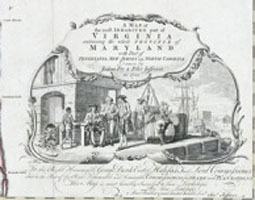George Montagu Dunk, 2nd Earl of Halifax (1716-1771)

Lord Halifax spent 13 years at the head of Britain's Board of Trade enacting mercantilist commercial policies before he entered the British ministry in 1762, first as First Lord of the Admiralty and then as a Secretary of State. Halifax helped establish a ban on westward colonial expansion with the Royal Proclamation of 1763, supported George Grenville's program to raise a revenue in the colonies to support the army stationed there, and gained a measure of transatlantic infamy for being involved in the unconstitutional arrest of John Wilkes. The city of Halifax, Nova Scotia, is named for him.
Halifax was born in October 1716 to George Montagu, 1st Earl of Halifax, and Lady Mary Lumley, daughter of the Earl of Scarbrough. He was educated at Eton and Trinity College, Cambridge. In 1741 he married Ann Dunk, whose reported dowry of £110,000 apparently came with the condition Halifax take Dunk as a surname. In 1745, Halifax raised a regiment to suppress the Jacobite rebellion in Scotland. The unit never saw action, but Halifax remained on the army lists and by 1759 had advanced to the rank of Lieutenant General.
In 1748 he was appointed President of the Board of Trade and was exceptionally active in the position during his 13 year tenure (which was interrupted only once, for 16 months between 1756 and 1757). Although the Board had long lost to the Secretaries of State whatever direct authority it could exercise over trade affairs and colonial policy, Halifax lobbied to have his position elevated to the Cabinet level. His efforts were largely unsuccessful, but the Board continued as a clearinghouse for information about America and as a forum to hear — but not resolve — disputes among colonies and the British government. The principal power Halifax retrieved for the Board was the nomination of colonial governors, but the final decision remained in the hands of the Privy Council. He left the Board in March 1761 to become Lord Lieutenant of Ireland.
Halifax returned to London from Dublin in 1762 to take up a series of positions, first in Lord Bute's ministry and then under George Grenville: first Lord of the Admiralty in June 1762; Secretary of State for the Northern Department in October 1762; and Secretary of State for the Southern Department, which included responsibility for the American colonies, in September 1763. The major political events of this period for the colonies were the negotiation and adoption of the Treaty of Paris that ended the Seven Years War and Parliament's agreement to compensate the colonies for costs they incurred in the conflict. With long-term implications for transatlantic politics, Halifax also issued a general warrant in April 1763 to arrest the authors, printers, and publishers of North Briton no. 45, which attacked the terms of the Treaty of Paris. The warrant was declared unconstitutional and turned John Wilkes into a national hero. Moreover, Wilkes sued Halifax for damages and won, receiving an award of £4,000 in 1769.
Pushed out of office when Grenville's ministry fell, Halifax went into opposition to the Rockingham ministry in the House of Lords. In March 1766 he was one of 33 peers who voted against the Stamp Act's repeal as a surrender of Parliament's authority. He returned to the government in 1770 as part of the ministry of Lord North (his nephew), first as Lord Privy Seal and then as Secretary of State for the Northern Department. He played little role in formulating policy in those years as his mental and physical health went into decline. He died in Northamptonshire, on June 8, 1771.






